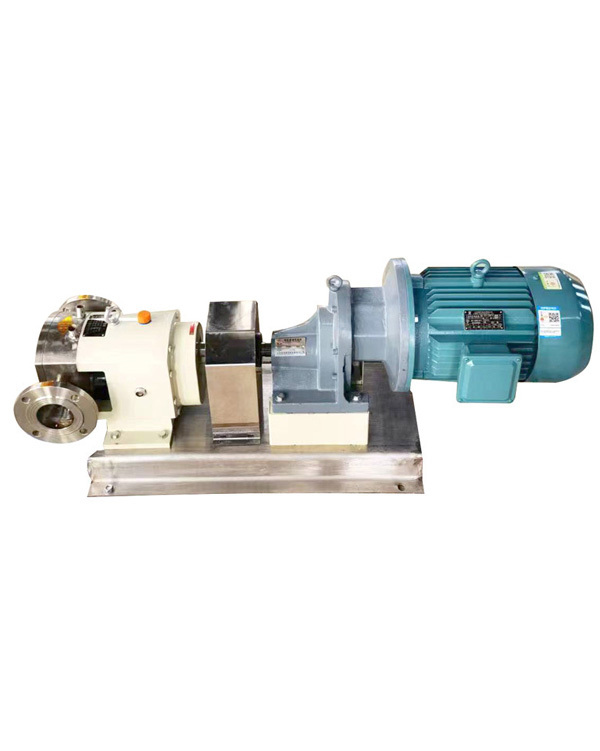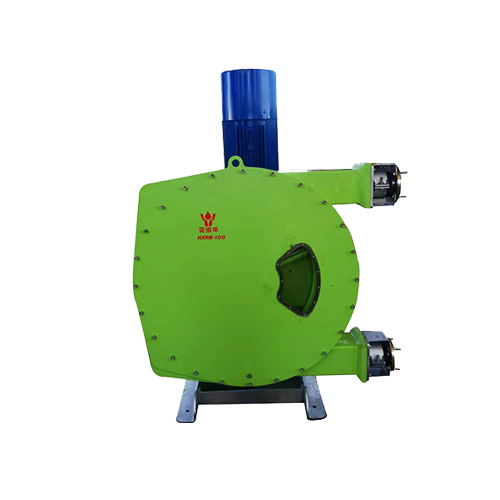Understanding Rotary Lobe Pumps for Wastewater Sludge Management
Jul 20,2025

Rotary lobe pumps are a critical component in the management of wastewater sludge, particularly in industrial applications. These positive displacement pumps utilize two or more lobes that rotate in a synchronized manner to create a consistent flow, making them particularly effective for handling viscous and abrasive materials like sludge. The design of rotary lobe pumps allows them to maintain a steady output, independent of the pressure, which is crucial in wastewater treatment processes where fluctuations in flow can lead to inefficiencies or operational challenges.
The primary advantage of rotary lobe pumps lies in their ability to handle a wide range of viscosities and solid content without compromising the integrity of the materials being pumped. Unlike centrifugal pumps, which can struggle with thick or chunky sludge, rotary lobe pumps create a gentle pumping action that minimizes shear stress. This is particularly important in wastewater applications where the sludge can contain delicate biological materials that must be preserved for effective treatment.
Moreover, rotary lobe pumps are renowned for their ease of maintenance. The design typically allows for quick access to the internal components without the need for extensive disassembly. This is beneficial for industries that require minimal downtime, ensuring that wastewater treatment processes can continue uninterrupted. Additionally, many rotary lobe pumps feature self-priming capabilities, which enhance their operational efficiency by eliminating the need for external priming systems.
In terms of applications, rotary lobe pumps are widely utilized in various sectors, including municipal wastewater treatment facilities, food and beverage industries, and chemical processing plants. Their versatility allows them to be adapted for different pumping tasks, such as transferring sludge from sedimentation tanks to dewatering units or moving thickened sludge to storage tanks.
Furthermore, the operational efficiency of rotary lobe pumps contributes to reducing energy consumption in wastewater treatment processes. By efficiently moving sludge and minimizing the energy required for pumping, these systems not only lower operational costs but also support sustainability efforts in industrial operations.
In conclusion, rotary lobe pumps play a vital role in wastewater sludge management due to their unique design and operational capabilities. They provide a reliable, efficient, and gentle pumping solution that can handle varying sludge conditions, making them an ideal choice for industries focused on effective wastewater treatment. Understanding the benefits and applications of rotary lobe pumps can greatly enhance the efficiency and effectiveness of sludge management strategies in various industrial settings.
The primary advantage of rotary lobe pumps lies in their ability to handle a wide range of viscosities and solid content without compromising the integrity of the materials being pumped. Unlike centrifugal pumps, which can struggle with thick or chunky sludge, rotary lobe pumps create a gentle pumping action that minimizes shear stress. This is particularly important in wastewater applications where the sludge can contain delicate biological materials that must be preserved for effective treatment.
Moreover, rotary lobe pumps are renowned for their ease of maintenance. The design typically allows for quick access to the internal components without the need for extensive disassembly. This is beneficial for industries that require minimal downtime, ensuring that wastewater treatment processes can continue uninterrupted. Additionally, many rotary lobe pumps feature self-priming capabilities, which enhance their operational efficiency by eliminating the need for external priming systems.
In terms of applications, rotary lobe pumps are widely utilized in various sectors, including municipal wastewater treatment facilities, food and beverage industries, and chemical processing plants. Their versatility allows them to be adapted for different pumping tasks, such as transferring sludge from sedimentation tanks to dewatering units or moving thickened sludge to storage tanks.
Furthermore, the operational efficiency of rotary lobe pumps contributes to reducing energy consumption in wastewater treatment processes. By efficiently moving sludge and minimizing the energy required for pumping, these systems not only lower operational costs but also support sustainability efforts in industrial operations.
In conclusion, rotary lobe pumps play a vital role in wastewater sludge management due to their unique design and operational capabilities. They provide a reliable, efficient, and gentle pumping solution that can handle varying sludge conditions, making them an ideal choice for industries focused on effective wastewater treatment. Understanding the benefits and applications of rotary lobe pumps can greatly enhance the efficiency and effectiveness of sludge management strategies in various industrial settings.
PREVIOUS:
Contact Us
E-mail :
sales@yaquanpump.com
service@yaquanpump.com
Phone/WhatsApp:
+44 7301702546
+63 9452052801
Address:
Room B208, Building 2, North Hongqiao Songri Center, No.215 Gaochao Road, Jiading District, Shanghai









